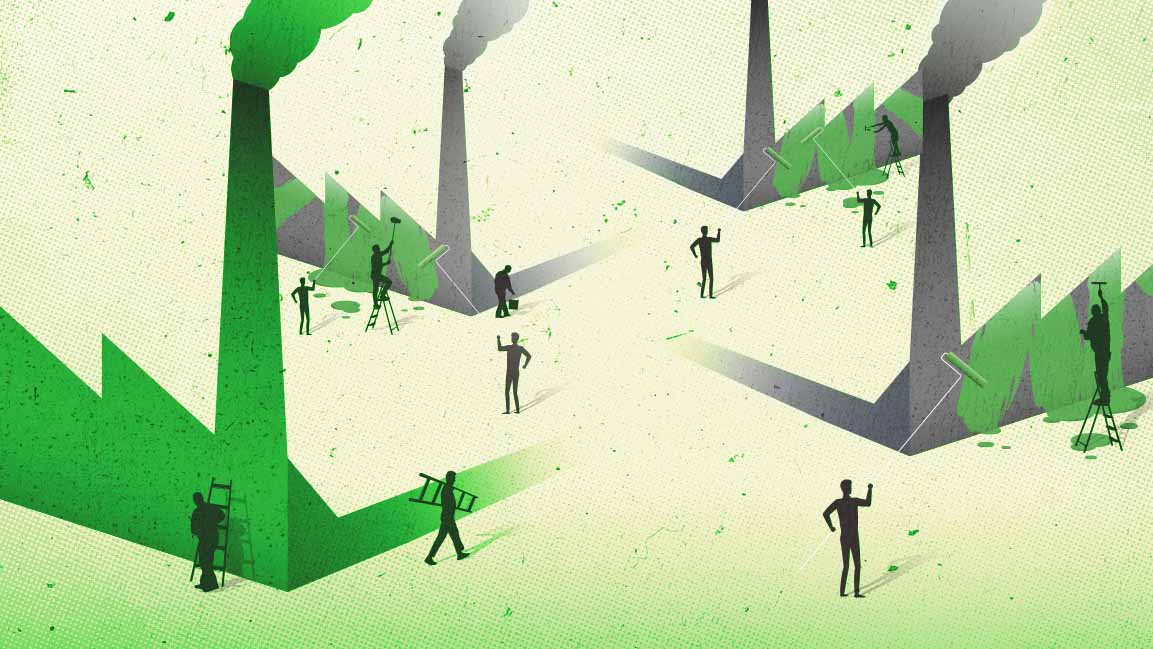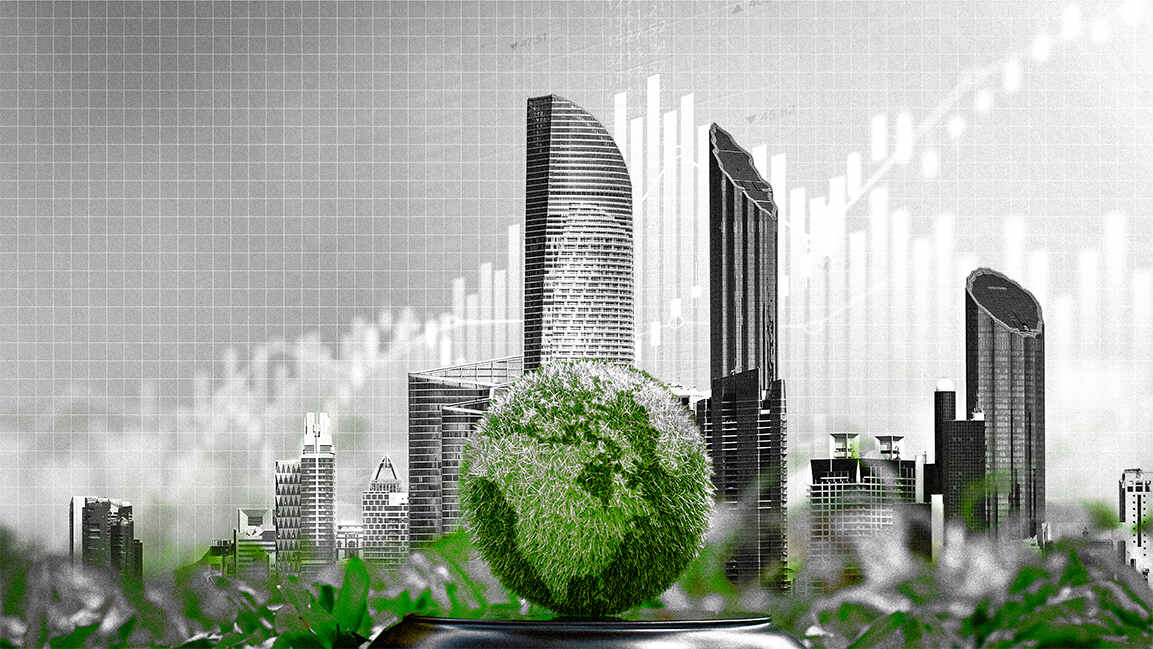- | 9:00 am
Sustainable transformation needs collective action and commitment—is the Middle East prepared?
Experts suggest that leveraging technology and enhancing policies are crucial.

Climate action and sustainability practices do not come from one source and cannot be achieved in silos. It is a classic example of a common challenge that cannot be solved by acting independently.
Often, we miss the point by blaming governments for not meeting “its” target. The truth is that it’s our target, and most of us, including the government and businesses, are responsible for meeting it.
Of course, the government could do a lot more. However, creating lasting change requires timely actions, developing necessary capabilities, and establishing infrastructure and legislation to enable progress.
The UAE leads in this practice, displaying significant strides in fostering agreements and policies to tackle climate challenges. In 2022, the Ministry of Climate Change and Environment (MOCCAE) initiated the UAE Climate-Responsible Companies Pledge to inspire businesses nationwide to embrace climate action and sustainability.
The objective is to encourage the private sector in the UAE to take proactive steps to combat climate change and mitigate carbon emissions.
Since then, 21 private-sector companies, including industry leaders such as Aldar Properties, Majid Al Futtaim Group, and Masdar, have pledged to accelerate their efforts toward decarbonization.
“Policymakers and governments are crucial in driving climate action. By implementing policies, strategies, and regulations that balance between reducing greenhouse gas emissions, renewable energy within nations is promoted, and climate challenges are more proactively addressed and setting the adaptation measures,” says Eng. Abdulla Al Remeithi, Division Director of Environment Policy, Regulations and Climate Change, Environment Agency – Abu Dhabi and National Experts Program Fellow.
Businesses in the Middle East region have been actively working on their sustainability agendas, with most integrating sustainability into their strategy and operations. However, they need to invest more in innovation.
“Companies need to allocate funds to invest in research and development to create and adopt new technologies that can reduce their environmental impact,” says Dr. Hamid Haqparwar, CEO, AGMC BMW Group Brands and Board Member, Albatha Automotive Group.
LEVERAGING TECHNOLOGY
Leveraging emerging technologies helps drive climate action. Emerging technologies simplify the identification of emission sources, prevent further damage through improved energy efficiency and lower-carbon alternatives to fossil fuels, and even facilitate the removal of excess greenhouse gases from the atmosphere, says Ali Alshimmari, Senior Manager, Special Projects and Distributed Generation, Masdar and National Experts Program Fellow.
“Advancements in technology have significantly influenced the cost of renewable energy by enhancing efficiency and lowering production expenses,” he adds.
Technologies such as renewable energy sources (wind, solar, geothermal), energy storage systems, and smart grids can drastically reduce reliance on fossil fuels, while innovations in electric vehicles and improvements in battery technology enhance transportation sustainability.
“Innovation and advanced technologies hold the key to addressing climate challenges,” says Haqparwar. “Innovations in solar, wind, and other renewable energy technologies are making clean energy more efficient and affordable, reducing the reliance on fossil fuels in mobility applications.”
Advances in battery technology and electric vehicle infrastructure are also crucial for reducing emissions, with transportation contributing approximately 20% of global greenhouse gas emissions. Similarly, technologies that enhance grid efficiency and energy storage capabilities can help manage renewable energy distribution and reduce waste.
Furthermore, advancements in carbon capture and storage and the development of more efficient industrial processes help reduce emissions from hard-to-abate sectors.
“Digital technologies, including the Internet of Things and artificial intelligence, can optimize energy use and increase efficiency across various sectors,” adds Alshimmari.
Giving an example of utilizing technology for climate action, Al Remeithi says a project led by him was launched during COP28: the UAE Environmental Identity (UAEEI), in collaboration with the UAE Ministry of Climate Change and Environment (MOCCAE) and the National Experts Program, to incentivize individuals in the UAE to reduce carbon emissions and help generate data, providing decision-makers with clear information for future policies.
A CHANGE IN POLICY
According to a recent global study by MorningStar, companies are committed to sustainability and implementing ESG practices. The report shows that 91% of surveyed firms are establishing specific goals or key performance indicators to support this strategy. While dedicated ESG practices are more prevalent among large to medium-sized firms, 20% of smaller companies are now also assigning teams to manage ESG efforts.
However, transparency and sustainability reporting are key to accelerating and encouraging tackling sustainability challenges.
“These reports offer valuable insights into a company’s sustainability performance, showcasing its dedication to ethical business practices,” says Al Remeithi. “By enabling stakeholders—such as investors, customers, and employees—to make well-informed decisions, they foster a culture of continuous enhancement in sustainability endeavors among companies. Such reports also help identify key areas of improvement, making companies aware of their progress.”
Haqparwar says businesses are generally eager to align their corporate strategies to tackle sustainability challenges. However, they must also consider shareholders in their decision-making processes.
In addressing the in-betweens of these complexities, he suggests collective action and collaboration whereby businesses, especially within the same industry, can achieve more by collaborating on sustainability initiatives, sharing best practices, and setting industry-wide standards.
At the same time, corporate responsibility and leadership, through which business leaders prioritize sustainability as a core part of their strategy and integrate it into their operations and corporate culture, are crucial.
Meanwhile, government and policy support through clear regulations, incentives, and partnerships is essential for businesses to tackle sustainability challenges.
“Governments can set ambitious targets for carbon neutrality, subsidize clean energy technologies, and impose cap-and-trade systems on carbon emissions to incentivize businesses to reduce their carbon footprint. Additionally, governments can invest in research and development for sustainable technologies and infrastructure, ensuring long-term environmental sustainability against climate change impacts,” says Al Remeithi.
This involves a regulatory framework that sets the foundation for climate action, including emissions standards, renewable energy targets, and incentives for green technology.
Financial Incentives are also an important aspect to consider. Governments can provide tax breaks and subsidies to encourage businesses and individuals to adopt sustainable practices and technologies.
Public-private partnerships involving collaborations between governments and private sector companies can also drive large-scale projects promoting sustainability.
“To make this possible, policymakers must adopt strategic foresight to reliably predict potential futures aligned with commercially viable paths of sustainable economic growth,” says Haqparwar.
This year, Fast Company Middle East’s Impact Council Climate Change and Sustainability subcommittee will convene to explore what’s next in energy transition and resource conservation, urban planning, and climate finance. The experts will discuss in greater depth where the world needs to go on key issues, such as transportation, energy systems, housing, air quality, and climate financing, and how to turn decisions into reality with real progress in hand.







































